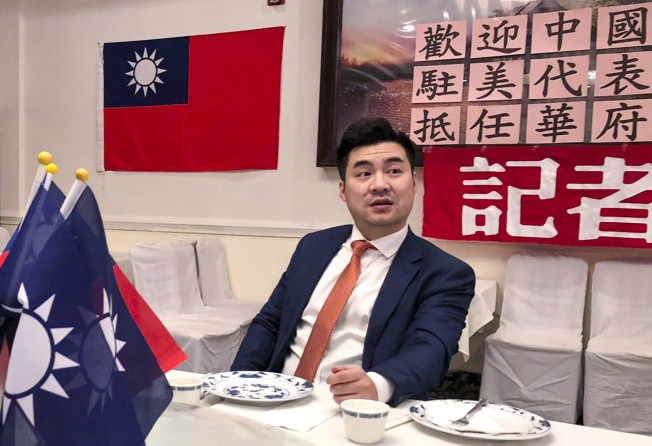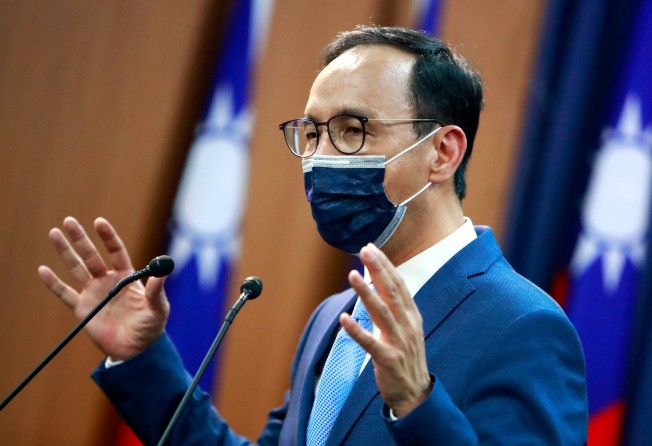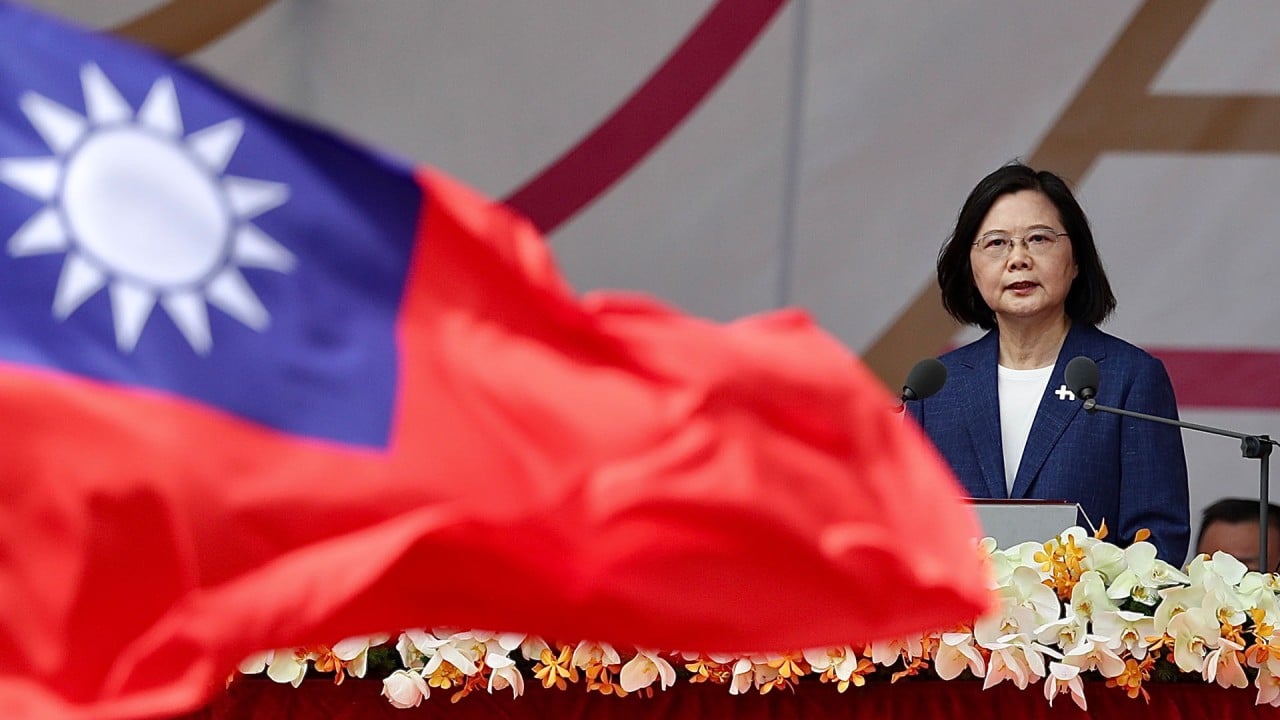
Taiwan’s opposition KMT rushes to regain lost voice in America
- High-level Kuomintang official is in Washington to speed up reopening of liaison office in a bid to counter the influence of Taiwan’s ruling DPP
- America’s deepening ties with Taipei make it imperative that the opposition party presents its side, party’s international affairs director says

Taiwan’s main opposition party has stepped up plans to reopen its liaison office in Washington, as it seeks to rebuild US ties after a 13-year hiatus.
The move from the Kuomintang, which is largely Beijing-friendly, comes at a time of rising tensions in the Taiwan Strait and warming ties between the administrations of US President Joe Biden and Taiwan’s Tsai Ing-wen.
As a result, new KMT chairman Eric Chu Li-luan, wants to swiftly reestablish the party’s presence in the US capital, to have its voice heard by American policymakers and think tanks, according to officials.
The party’s US-educated deputy international affairs director, Eric Huang, was dispatched to Washington late last month, tasked with reopening the office that was first set up in 2004 with the KMT’s pro-mainland ally, the People First Party.

The office, which closed in 2008 after Ma Ying-jeou of the KMT became president of Taiwan, was due to reopen earlier this year but kept getting stalled by successive Covid-19 outbreaks in the US.
However, while the KMT remained unrepresented in the US following the Ma years, Taiwan’s ruling Democratic Progressive Party retained its office in Washington even after its chairwoman Tsai was elected president in 2016, and has won the trust and support of Americans in the years since.
Alexander Huang Chieh-cheng, the KMT’s international affairs director and a special adviser to its chairman, said the reopening of the Washington office was important now that US-Taipei relations had deepened further.
“A sound US-Taiwan relationship has always been a strategic leverage necessary to deal with the cross-strait relationship ever since 1949, when the Republic of China [ROC] government moved to Taiwan,” Huang told the South China Morning Post. And it was more so when the balance had tilted sharply in Beijing’s favour, he noted.
The KMT or Nationalist forces set up an interim ROC government in Taiwan after losing the civil war to the Chinese communists in 1949.
Cross-strait ties remained fraught until Ma’s time as president between 2008 and 2016, when he adopted a policy of engaging Beijing, which sees Taiwan as a renegade province awaiting reunification.
But relations deteriorated again after Tsai came to power in 2016 and refused to accept the one-China principle.
Faced with mounting pressure from Beijing, Tsai has increasingly turned to the US for support. Washington switched recognition from Taipei to Beijing in 1979 but retains substantive ties with the island.
Washington has allied more closely with the Tsai government as leverage since 2017, as Biden continues his predecessor Donald Trump’s competitive strategy towards Beijing.
“The KMT’s decision to set up an office in [Washington] is aimed at better communication of our policy positions to Washington’s policy communities, clarifying misinformation [on the party] … renewing friendships and making new ones,” said Alexander Huang, a former vice-chairman of Taiwan’s Mainland Affairs Council that charts cross-strait policies.
The DPP and pro-independence forces in Taiwan accuse the KMT of siding with Beijing and trying to sell out the self-ruled island.
Such narratives make it imperative that the KMT regain its voice in the US, which it has increasingly lost in recent years.

Once the permanent liaison office is set up, several delegations of senior party members will travel to the US to discuss various policy matters, “from security to trade, and from democratic practice to new areas of collaboration”, Huang said in outlining plans for the coming year.
As for how the KMT would be able to gain the trust of US policymakers and think tanks, many of whom are viewed as sympathetic towards the DPP, Huang said: “In the perceived long competition between the US and the People’s Republic of China, the elites from Washington to Wall Street are in fact sided with US interests, not the DPP or the KMT.”
“We truly believe that, especially in the next six to 10 years, both the US and Taiwan need to ‘buy time’ in dealing with a rapid expansion of the PRC’s influence in the Indo-Pacific region,” he said, referring to the military build-up by Beijing and rising regional tensions.
“The KMT is the party that can better maintain peace and stability in the Taiwan Strait – a shared first priority between the US and Taiwan – by enhancing defence capability while mitigating threats at the same time.”
